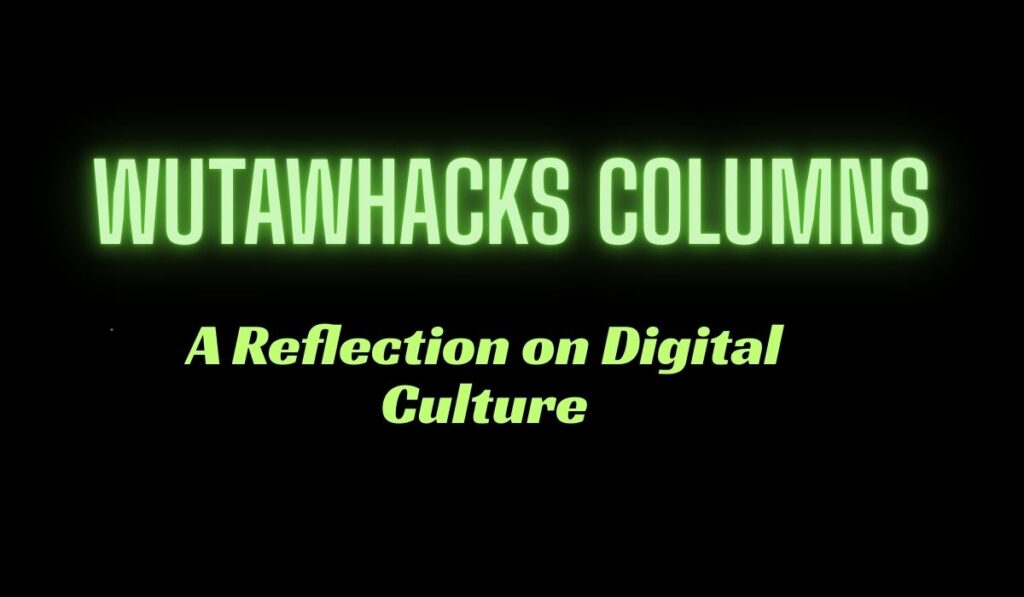There’s something undeniably magnetic about Wutawhacks columns—those sharp, often polarizing pieces that seem to exist in the sweet spot between satire, social commentary, and outright trolling. If you’ve spent any time online, particularly in spaces where internet culture and real-world discourse collide, you’ve probably stumbled across one. Maybe you laughed, maybe you cringed, or maybe you found yourself nodding along despite yourself.
But what exactly are Wutawhacks columns? And why do they resonate (or infuriate) so many people?
The Anatomy of a Wutawhacks Column
At their core, these pieces thrive on provocation—not just for the sake of it, but as a way to expose contradictions, challenge norms, and sometimes just poke fun at the absurdity of modern discourse. They’re often written with a mix of irony and sincerity, making it hard to tell whether the author is dead serious or just seeing how far they can push an idea before people start yelling.
Take, for example, a classic Wutawhacks-style take: “Why Being Offended Is the New American Hobby.” On the surface, it reads like a boomer rant about “snowflakes,” but dig deeper, and it’s actually a critique of how performative outrage has become its own kind of social currency. The piece doesn’t just mock hypersensitivity—it also implicates the people who make careers out of being perpetually aggrieved. That duality is what makes these columns so compelling.
Why They Work (And Why They Sometimes Don’t)

The best Wutawhacks columns work because they’re self-aware. The writer knows they’re playing with fire, and that’s the point. There’s an understanding that today’s digital landscape rewards extremes—whether it’s viral outrage or viral approval—and these pieces often exploit that dynamic deliberately.
But here’s the catch: when the balance tips too far into pure provocation without substance, the whole thing falls apart. A bad Wutawhacks column isn’t just unfunny—it’s lazy. It mistakes shock for insight and ends up feeling like a cheap shot rather than a meaningful critique.
For instance, a piece titled “Cancel Culture Doesn’t Exist—You’re Just Bad at PR” could be brilliant if it dissected how public figures weaponize victimhood to deflect criticism. But if it’s just a smug dismissal of legitimate concerns about online mobs, it becomes exactly the kind of shallow hot take it’s supposedly critiquing.
The Fine Line Between Satire and Sincerity
One of the trickiest things about this style is that it often blurs the line between satire and genuine belief. Writers like Jon Swift (RIP) or early-era Stuff White People Like mastered this by making readers question whether they were in on the joke. Wutawhacks columns operate similarly—sometimes you’re meant to laugh, other times you’re meant to squirm, and often, you’re meant to do both.
This ambiguity can backfire, though. In an era where irony is harder to detect (thanks, Poe’s Law), a piece meant as parody can easily be taken at face value. I’ve seen more than one Wutawhacks-style article screenshotted and shared in outrage by people who missed the point entirely. That’s not always the writer’s fault—context collapses in digital spaces—but it’s a risk inherent to the form.
The Legacy and Future of the Style
So where does this leave Wutawhacks columns in the grand scheme of online writing? They’re not going anywhere, if only because the internet thrives on friction. As long as there are sacred cows to tip over and hypocrisies to expose, there will be writers willing to play the troll-with-a-point role.
But I hope the genre evolves beyond just “lol, triggered?” territory. The best versions of these columns don’t just mock—they make you think. They hold up a funhouse mirror to society and let you decide whether the reflection is funny, horrifying, or a little bit of both.
FAQs About Wutawhacks Columns
1. What exactly is a “Wutawhacks column”?
A Wutawhacks column is a style of writing that blends satire, social commentary, and deliberate provocation. These pieces often challenge conventional opinions, expose contradictions in modern discourse, or poke fun at cultural absurdities—sometimes all at once. The tone can range from ironic to deadpan, making it hard to tell whether the author is entirely serious or just seeing how far they can push an idea.
2. Why are they called “Wutawhacks” columns?
The name seems to be a playful, exaggerated take on internet slang—something between “what the hacks?” (mocking lazy writing) and a nonsensical, meme-like twist on commentary. It’s not tied to a specific writer but rather describes a genre of online pieces that thrive on sharp, sometimes controversial takes.
3. Are these columns just trolling?
Not necessarily. Good Wutawhacks-style writing has a point beneath the provocation. The best examples use humor or exaggeration to critique real issues, like performative outrage or hypocritical trends. However, when done poorly, they can devolve into cheap shock value without substance.
4. How do you tell if a Wutawhacks column is satire or serious?
That’s part of the challenge—and the fun. The ambiguity is intentional. Clues might include over-the-top phrasing, absurd comparisons, or knowing winks to the audience. But in today’s polarized climate, Poe’s Law (where satire becomes indistinguishable from real extremism) makes it harder to tell. If you’re unsure, check the writer’s other work or see how the piece is framed by the publisher.
5. Why do people love or hate these columns so much?
Fans appreciate the subversive humor and willingness to call out hypocrisy. Critics argue that some pieces prioritize controversy over insight or accidentally fuel the very things they mock. It’s a fine line between clever critique and lazy provocation.
6. Who writes like this?
You’ll find this style in certain corners of online journalism, satire sites, and independent blogs. Think of writers like early Gawker contributors, the snarkier The Onion pieces, or even Twitter personalities who specialize in “stirring the pot” with a purpose.
7. Are Wutawhacks columns harmful?
They can be if they’re misread or weaponized. A satirical piece mocking, say, conspiracy theories might get shared earnestly by actual conspiracy theorists. Context matters, and not every reader is in on the joke.
8. Will this style of writing last?
As long as the internet rewards bold takes and clapbacks, yes. But the best versions will adapt—less cheap shots, more clever critique. After all, the world’s absurdities aren’t going away, and neither are the writers who skewer them.

